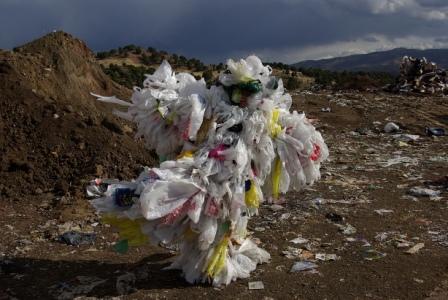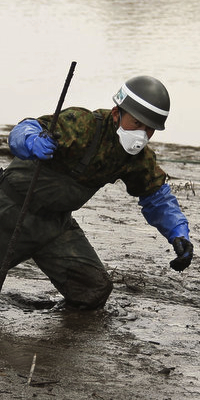
 Trade groups are in court to prevent a reusable bag company from disparaging plastic in its advertising and to overturn plastic bag bans.
Trade groups are in court to prevent a reusable bag company from disparaging plastic in its advertising and to overturn plastic bag bans.
In one case, plastic bag manufacturers are suing a reusable bag company for claiming that its product is less harmful to the environment than plastic bags. In the other, the California Supreme Court moved to uphold the right of local governments to pass bag bans without conducting environmental impact reports. That may sound counter-intuitive, but the initial bag bans applied only to plastic bags, resulting in a big increase in consumption of single-use paper bags. Outside the United States, dozens of countries have passed nationwide plastic bag bans, including Ireland, Rwanda, China, and most recently, Italy.
The California Environmental Quality Act (CEQA) requires an environmental impact report (EIR) for any proposed legislation that may impact the environment, pro or con. This requirement has been the primary tool used by a group called Save the Plastic Bag Coalition in the dozens of lawsuits it has brought against various local California governments that have proposed bag bans. Although bag ban advocates initially balked at this use of CEQA, the result has been more comprehensive bag ban legislation that covers all single-use bags, not just those made of plastic. The California Supreme Court's decision removes this roadblock, which had stopped several municipalities from even considering a ban or tax because EIRs cost about $100,000.
I was surprised to learn: Last year the Federal Trade Commission updated its Green Guides, which govern environmentally focused marketing claims. Most people assumed the new rules would reduce greenwashing, but so far they have been used primarily by large companies to sue smaller green businesses.
I'll be watching ... to see what happens in the other plastic lawsuit against ChicoBag. One lawyer said if the plastic bag manufacturers win, it could set a precedent that would allow companies like Chevron to sue solar companies for claiming to offer a product that is environmentally preferable to oil.
Read more about this topic
The bag bans will likely keep coming because the plastic industry has not developed an effective argument or a recycling solution that convinces politicians not to pursue those initiatives. The bags do create a litter issue because they are lightweight and blow away — sometimes even after they are collected — and the industry's effort to increase recycling in California has largely been limited to adding recycling bins along beaches and a few highway rest stops. Since people are largely unaware that they can recycle plastic bags and local governments are responsible for processing recyclables, the industry adding more bins can only go so far.
I'll be watching ... to see whether local city governments believe this ruling gives them the green light to ban plastic bags, since the court has retained the right to require an environmental impact report under certain circumstances.
Shared responsibility: Many people focus on plastic bags as a litter issue and blame the manufacturers, not the people who litter. The reality is that consumers, the industry, and retailers all contribute to the litter problem.
Read more about this topic
| Tweet This Page |










